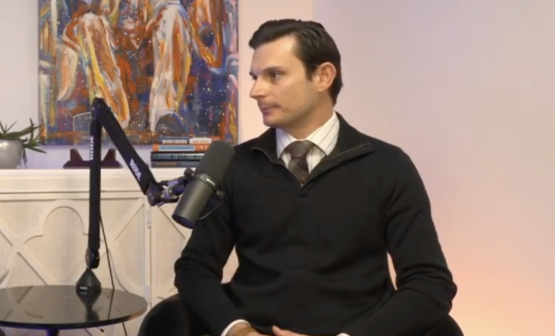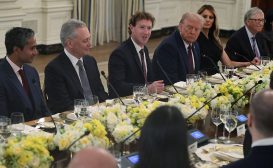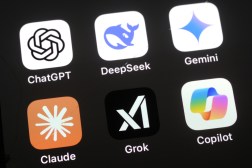Why a former Pixar exec joined GSA’s new tech service

Rob Cook has worked with Oscar-winning creative geniuses at Pixar who produced acclaimed animated films like “Toy Story” and “Finding Nemo.” Now at the helm of the General Services Administration’s Technology Transformation Service, Cook says the talent of the bureaucracy hackers and civic-minded technologists he’s gotten to know since his hire in late October is “as good as anything I’ve ever seen.”
The ability to join such a team dedicated to “inspiring” work that makes “a big difference that trickles down and that impacts people’s lives” is what brought Cook out of his “failed semi-retirement” to take a job in government, something he never imagined he’d ever do.
In first meeting with members of GSA’s 18F team, which is now housed in the newly formed TTS organization, more than a year ago at a conference, “I felt like I was in a group that was full of people that were as good as people I’d ever met in the private technology sector,” Cook told FedScoop.
That, combined with the “potential to do something and have it matter to people” and the immense challenge at hand, drew him in. But he only thought he’d maybe consult with 18F, not take on a role as the commissioner of GSA’s newest governmentwide service.
That’s where tech recruiter-in-chief and former U.S. CTO Todd Park came in.
The two met at a TED Talks conference. “We started talking and just really, really hit it off,” Cook said. “One thing led to another and that’s how I ended up here.”
Cook saw quite a few similarities in his past work with Pixar using computer graphics to produce realistic animation and in the mission of the roughly 300-member TTS team.
“To have it be just one creative person, the director, and 300 people just doing what they’re told, it’s not going to be a very good movie,” Cook said. “You want lots of creativity going into it. But if that creativity works in all sort of different directions, then it’s not going to cast a spell on you. The things they did to make that work were really similar to the things that make software work.”
The organizations also share the challenge of bringing new practices into industries that have operated the same way for many, many years. At Pixar, it was the challenge of merging teams of artists and software engineers to create something bigger than either of them individually envisioned. With TTS, it’s matching largely private-sector technologists with acquisition and program personnel to digitize and drive efficiency to government services.
“It’s this idea of two completely different worlds who don’t speak the same language getting to know each other and getting to be partners toward something that neither one of them could do by themselves,” Cook said.
That may prove a difficult task for Cook, who has no experience in the government outside of being a citizen. But in his first month, he’s had many people in the federal IT space — U.S. CIO Tony Scott, his adviser and form 18F Executive Director Aaron Snow, GSA CIO David Shive, and former founding TTS commissioner Phaedra Chrousos — giving him a crash course of how it all works.
“It’s actually been one of the best things in my first month, how much people have been willing to spend time with me and fill me in on things, repeat acronyms,” he said while laughing, “and give me history, and give me context, introduce me to people. We touch so many agencies and all parts of government, so there’s a lot of context. I’m still just trying to drink in all that context.”
Relevant to the idiosyncrasies of government work, when Cook started back in late October, he had a week-old GSA inspector general’s report waiting for him claiming 18F had lost $31 million since fiscal 2014 due to “inaccurate financial projections, increased staffing levels, and the amount of staff time spent on non-billable activities.” Despite the contention that continues to swirl around the 18F team, particularly from private contractors and federal-tech trade groups, the new leader saw that report as a “helpful” blueprint for things he needed to address early on.
“Everything in there is pretty straight forward,” Cook said. “I didn’t see anything in there that’s particularly hard to do. Those will be easy problems to fix. I’m actually glad they were spelled out.”
As for the $31 million lost, Cook doesn’t “see any problem with that.”
“Look at a startup company. How many startup companies are profitable their first day?” he said. “This is an investment I think will pay off hundreds or thousands” times more. “If you look at the impact we can have on government as a whole, making the government a better buyer, there’s just vast amounts of money we can save the government.”
Cook has his sights set on doing just that — saving the government money though better IT acquisition — in the long term.
“By far the largest impact I think we can have is to make the government a better buyer of technology,” he said. “It’s just not a very good buyer of technology. The way it works excluded a huge amount of the talent out in the private sector. It requires companies to go through a process that almost sets it up to be super expensive and a lot of extra work and frustrating and not work very well in the end. It’s amazing people can get anything done through that process.”
And the way to do that? Of course, Cook goes back to the talent.
“In order for government to be better buyers of technology, they’ve got to have people inside the government who are the best and brightest at technology,” he said, citing 18F and TTS’s model of bringing in technologists for two-to-four year terms, “constantly bringing fresh blood in” to keep up with the pace of technology and keep things from getting “stale.”
“It’s just a matter of getting the best brains in here,” he said.
Despite that, Cook said TTS is never going to grow much bigger than it currently is. The intention remains that industry will do the heavy lifting.
TTS is “always going to be reasonably small because the impact we’re going to have is through the leverage into the agencies and industry,” he said. Reforming IT acquisition and how agencies buy digital services, Cook explained, is “an important part of what we do and I think it’s the one that has the biggest chance for leverage.”






